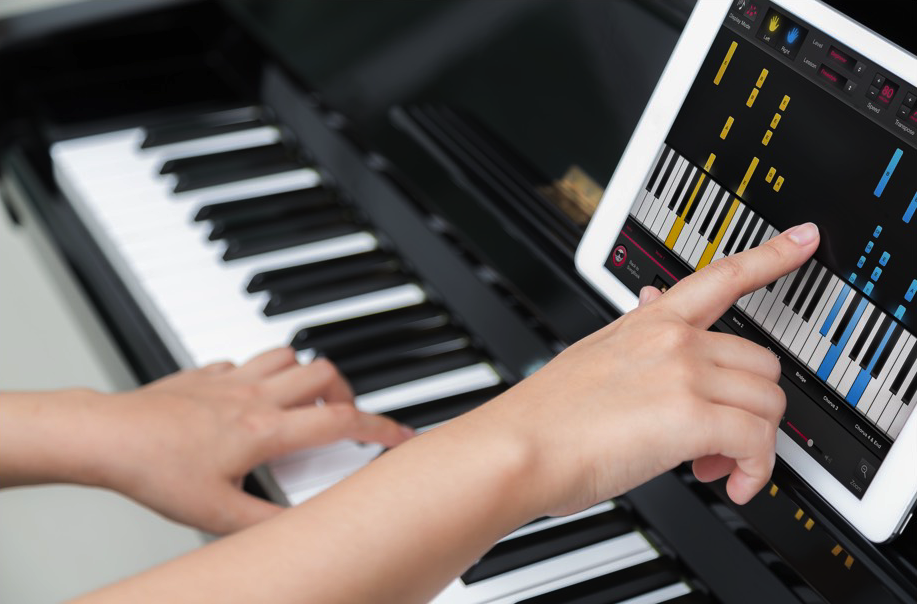So you’ve decided that it’s finally time to make one of the biggest commitments of your life. You feel you’re mature enough, experienced enough, and responsible enough to nourish and take care of this new entity you’re ready to call your own. If you think we’re talking about a baby, puppy, kitty or even newly-wed spouse, think again. We’re talking about a piano, and taking your relationship with it to the next level. Now for many of us folk, buying a brand new piano is simply not an option, because we have not yet gotten around to planting a money growing tree in our backyard. So the majority of us will go ahead and try to purchase a used piano. But before you hand over that wad of cash, there are a few questions you should ask the seller to make sure you’re committing your life to a product that is truly worthy of your love, affection, care and devotion.
1. Why Are You Selling the Piano?

This is the question on the back of anyone’s mind when they are buying something used. Basically, if it’s as awesome and as great as the seller says it is, then why don’t they want it? Immediately your over-active imagination begins filling in the blanks with horrifying stories of gore, bloodshed, lies and deception. But often enough, there is no dark backstory to a piano on sale. The reasons for selling a piano are plenty and typically harmless, but still, it is wise to make sure those reasons aren’t going to cost you. If you hear responses such as “It’s taking up space,” or “I could use the money” keep in mind that this might indicate some degree of piano neglect, since if they need the cash or consider their piano a mere space-filler, chances are they haven’t been spending much on maintenance.
2. How Often Did You Tune the Piano?
Tuning a piano is as essential as burping a baby, it must be done otherwise there will be disastrous consequences. Therefore, when buying your new musical baby, make sure it was cared for properly by its previous owners! A piano must be tuned at least twice per year – anything less could mean you’ll soon be paying extra for special tuning or other related maintenance. So make sure you verify whether the tuning schedule was consistent. Keep in mind that if the piano is out of tune, it might be due to serious internal issues, and therefore is not even worth your dough.

3. Who Performed Maintenance on the Piano?
Another key piece of information you need to collect before making your purchase is not just whether the piano was tuned or not, but rather who did the tuning. Was the deed done by a qualified professional or by Jerry from the adjacent block in exchange for lawn mowing services? If your tuner is not qualified, there are a plethora of potential amateur errors to be done that could lead to an avalanche of internal damage. Therefore, ensure that all tuning and repairs on the piano were carried out by a registered piano technician.

4. Where Was The Piano Stored?


Where did the piano in question call home before you came along? It’s a significant piece of information that is worth knowing to get a better idea of what you’re dealing with. If a piano has been kept in a basement (especially in flood-prone areas) or a public storage facility, chances are it’s been exposed to some less than ideal temperatures. Pianos need climate-control, something the aforementioned locations lack, and they do best (and sound best) at room-temperature. Just like humans, temperature extremes along with humidity fluctuations can be detrimental to a piano’s sound and can pose a serious threat to its overall quality.

5. Has the Piano Been Moved Around A Lot?

We’ve seen before that pianos can occasionally handle some rumble and tumble and be moved to faraway and challenging locations. Still, a piano sitting atop a mountain top is not exactly its natural habitat, and you should find out how much extra stress your potential piano has endured, and whether any dangerous measures were ever taken during a move (like leg removal-ouch!). Too many unnecessary moves can accumulate to structural problems in the piano’s later life (much like your mother always told you to sit straight so you won’t have a hunched back in old age 🙂 ).
6. How Often Was Your Piano In Use?

Was the piano played daily or was it only used to stand still and be pretty? This is important to know because the answer can divulge information on whether the piano was tuned frequently enough. Household pianos used once a week or more should be tuned four times per year, while unused pianos can go up to a year in the right climate conditions.
7. Who Were the Previous Owners?

Is your used piano second-hand? Or maybe 17th hand? The answer is rather significant when judging its value. You see, the longer a piano’s history, the more you’ll be affected by it. It’s also important to note just who these previous owners were, wild punk-rockers, or classy orchestra musicians? Serious pianists are more inclined to keep their instruments in top shape, because they’re more sensitive to any miniscule change in sound. Meanwhile, those who are uninterested in playing the piano but are interested in testing its volume, could end up inadvertently costing you quite a lot down the road.
Source: 1
















4 comments
[…] previously discussed how to buy a used piano and how to buy a new piano, but for many of us, the practicality of owning a real piano seems but […]
It really helped when you mentioned how a piano needs to be tuned at least twice a year. My wife wants to get a piano so she can practice her music and wants to start by buying a used one, so I’m glad I found your post. I can see how anyone looking into this would want to know what type of tuning and maintenance a piano has had before buying it to make sure they don’t buy something that will make them spend a ton of money to repairs shortly after buying it.
It seems that you get a very unique way of writing.. Im grateful too that I get to learn all these questions to ask before paying for an old piano..great job!
I think I’ve found a used piano that I want to purchase, so I’m grateful to you for these questions that I should ask. I knew that piano tuning was a really important factor to consider, but I wouldn’t have thought to ask where it was stored. I’ll have to find out, and then hopefully I can finally have a piano in my own home.